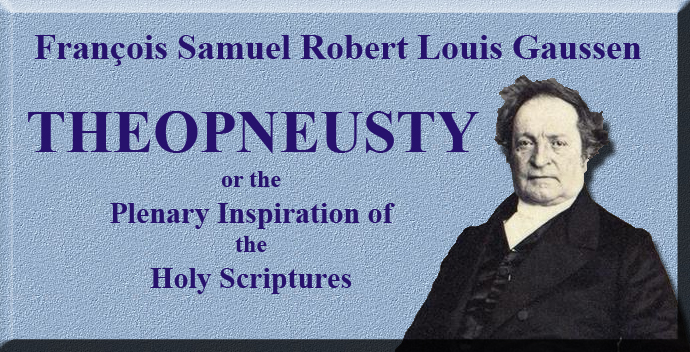
Theopneusty
or the
Plenary Inspiration of the Holy Scriptures
By François Samuel Robert Louis Gaussen
Table of Contents
|
INTRODUCTION BY THE TRANSLATOR. DEFINITION OF THEOPNEUSTY. OBJECTIONS EXAMINED.
EXAMINATION OF THE EVASIONS
OF THE USE OF SACRED CRITICISM, IN ITS RELATIONS TO THEOPNEUSTY.
DIDACTIC SUMMARY OF THE DOCTRINE OF THEOPNEUSTY,
SCRIPTURAL PROOF OF THE THEOPNEUSTY.
|
|
 |
 |
|
|
|
-
Site Navigation
 Home
Home What's New
What's New Bible
Bible Photos
Photos Hiking
Hiking E-Books
E-Books Genealogy
Genealogy Profile
Free Plug-ins You May Need
Profile
Free Plug-ins You May Need
 Get Java
Get Java.png) Get Flash
Get Flash Get 7-Zip
Get 7-Zip Get Acrobat Reader
Get Acrobat Reader Get TheWORD
Get TheWORD